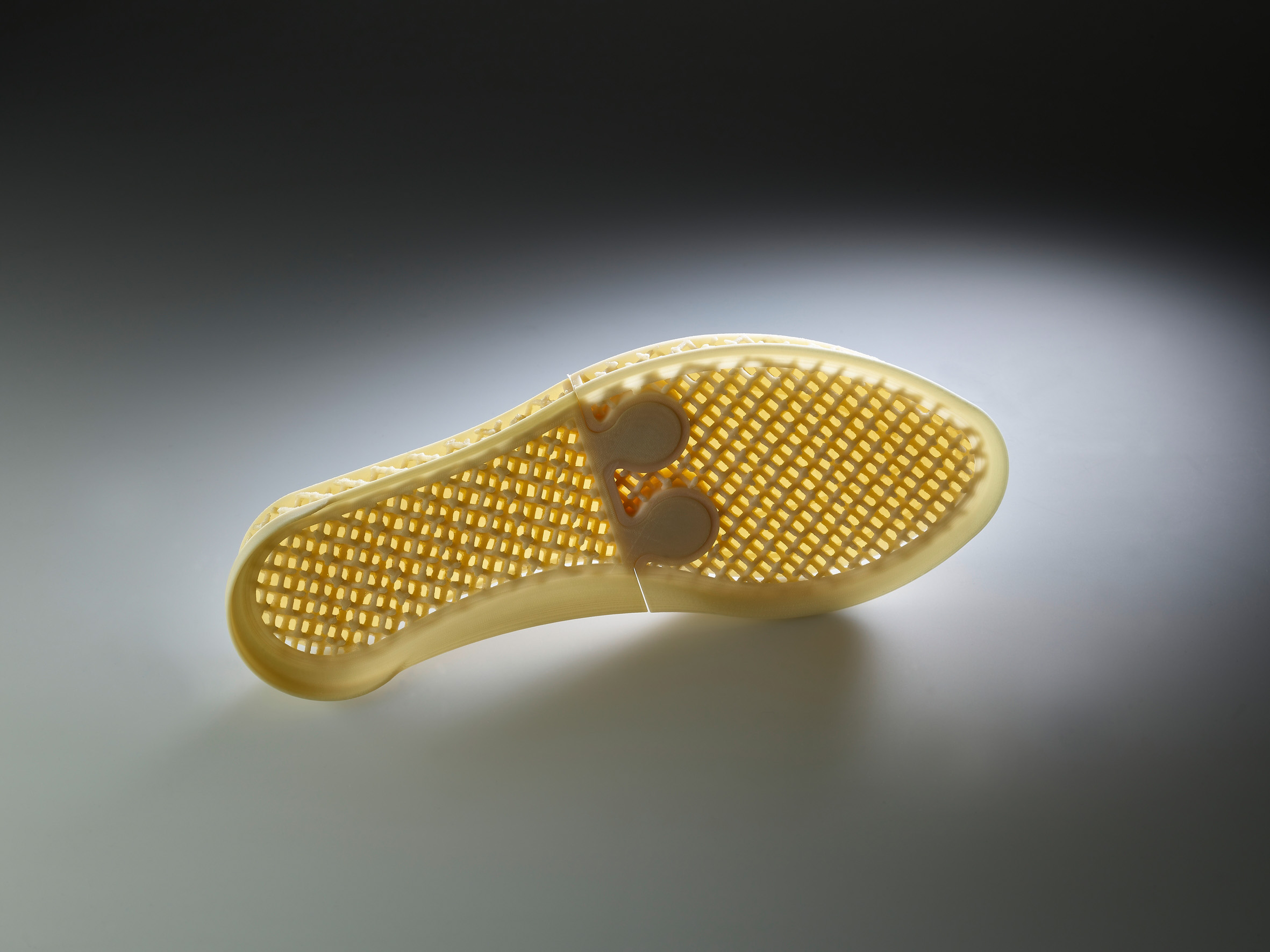 • APF process: Process original soft materials of virtually all Shore hardnesses
• APF process: Process original soft materials of virtually all Shore hardnesses
• Flexible and firm: Freeformer processes Hytrel® polyester elastomer from Dupont
• Functional: Resilient elastic prototypes for applications in the automotive industry
The Freeformer can additively produce complex functional components from original soft materials of virtually all Shore hardnesses. For Formnext Connect, this will be demonstrated using Arburg Plastic Freeforming (APF) to produce automotive components and a flexible shoe sole from Hytrel®, a thermoplastic polyester elastomer from Dupont.
“Such types of fully functional prototypes made of soft thermoplastic elastomers are in great demand, especially in the automotive industry,” explained Lukas Pawelczyk, Head of Freeformer Sales at Arburg. “Our customers in this sector include well-known OEMs as well as suppliers. When developing new products, they rely on the APF process to produce elastic hoses, axle boots, and housing seals, for example.”
Thermoplastic elastomers up to Shore A hardness 28
In contrast to other additive manufacturing processes, the APF process can also handle very soft original materials and produce complex functional components in hard/soft combinations. The FDA-approved original TPE Medalist MD 12130H (Shore A hardness 32) and SEBS Cawiton PR13576 (Shore A hardness 28) can currently only be processed with the Freeformer.
TPU Desmopan 9370 AU (Shore A hardness 70) is also particularly interesting for the automotive industry. The material is as flexible as rubber, as easy to process as a thermoplastic and also insensitive to heat and chemicals. Due to its impermeability, characteristic black colour and resilience even in continuous use, this material is the preferred choice for various functional prototypes in the automotive sector. Daimler has already used this material to additively manufacture connecting hoses for use in the cooling system of a prototype vehicle, for example. GTG Gummitechnik also manufactures TPE door seals for the automotive sector. An additively manufactured sample part for the C-pillar has shown how the development time from a CAD model to the finished functional sample part can be significantly accelerated using the APF process.
Targeted modification of mechanical properties
In the APF process with the Freeformer, it is also possible to vary the filling level of a component via the slicing parameters and to carry out targeted modifications of its mechanical properties. So even within one component, different material densities can be realised. This means that shoe soles, for example, can be made from just one material and still be individually adapted to the person's heels. Dupont's thermoplastic polyester elastomer Hytrel® (Shore D hardness 40) is a suitable material for this purpose. In terms of mechanical load-bearing capacity, resilience, and permanent load, the additively produced component has almost the same properties as a moulded part.
























































































